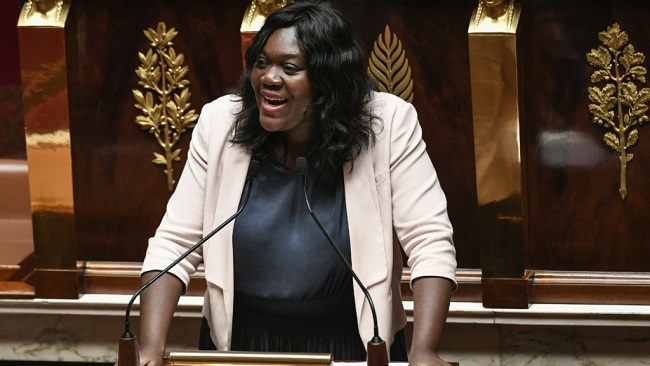Black French MP leads fight against racist online trolls
Laetitia Avia, a black French MP whose proposals to tackle online trolling go before parliament on Wednesday, suffers so many racist insults on Twitter that she once thought an abuse-free day was due to a technical problem.
“It happened once or twice when I really didn’t receive anything and I wondered if there was a bug,” the former corporate lawyer told AFP in an interview.
“It’s incredibly rare that I don’t get anything.”
Since swapping her successful private sector career to be part of President Emmanuel Macron’s ruling party in 2017, Avia has regularly publicised the most abject abuse and death threats she receives online.
“I sometimes think that I should lend my Twitter account to people from time to time so they can see for themselves.”
But her real fightback, which could have consequences beyond France, begins on Wednesday when French MPs start debating a draft law to tackle hate speech online which she has been preparing for the last year.
Inspired by German legislation that came into force in 2018, she hopes the new law will form the foundation of a wider European push to tackle racism, anti-Semitism, sexism and homophobia peddled by usually anonymous users of social media.
Cleaning up the internet, she believes, is the responsibility of her generation, which was the first to grow up with the social media phenomenon.
“There’s a growing awareness in our society at large. No-one wants to accept the status quo,” Avia said.
“No-one wants to leave the big platforms to regulate themselves. Self-regulation has failed.”
Abuse button
Her draft law proposes two main ways to tackle the scourge of what it terms as “obviously hateful content.”
The first plank will require social media platforms such as Facebook, Twitter, Instagram or YouTube to create a button that will be “accessible, simple and clear” to report abusive messages.
The button will be the same across all platforms and should be easy to find — unlike the mechanism to report abuse on German sites, which Avia believes is too difficult to locate.
“I want to make the user experience easy,” she said, while acknowledging the networks themselves will have to invest in teams of adjudicators to assess, block and remove reported content if necessary.
“It’s a financial investment, absolutely. That’s what we are asking for,” she said.
The second major part of the draft law will also increase the liabilities and potential penalties for social networks, who have long argued they are unable to police the billions of people who use their highly-profitable products.
The draft law proposes creating a new crime — failing to remove abusive content — and the platforms will have just 24 hours to take down “obviously hateful” messages or videos, or face fines of up to 1.25 million euros ($1.4 million).
Critics
But critics say the law places too much power in the platforms’ hands by making them arbiters of online speech — which could lead to the closing down of free speech, as well as tackling abuses.
Avia says the role of the French media regulator, the CSA, will be key because it will assess whether companies are being too lax or too restrictive.
Offenders could face a potential fine of up to 4.0 percent of global sales.
Three French tech industry associations warned on Monday that the law was attempting to do too much because it contained measures to tackle offences such as harassment, pimping or condoning terrorism.
It will also cover search engines, as well as social media.
“(Our) organisations wonder about the relevance of a law that is now targeting a much wider range of crimes at the risk of compromising its application,” said a statement from Syntec Numerique, Tech in France and ASIC.
Others including Facebook have questioned whether the 24-hour window to remove hateful content is realistic, saying many postings require careful analysis and tricky legal assessments.
But Avia is convinced the threat of penalties and demanding deadlines are needed.
“I flag content as much as possible and I see that the platforms are not doing enough,” she said.
“Even this last weekend, I flagged a comment that called me a ‘black bitch’ and I got a response saying that it didn’t contravene the platform’s user conditions.”
(AFP)





